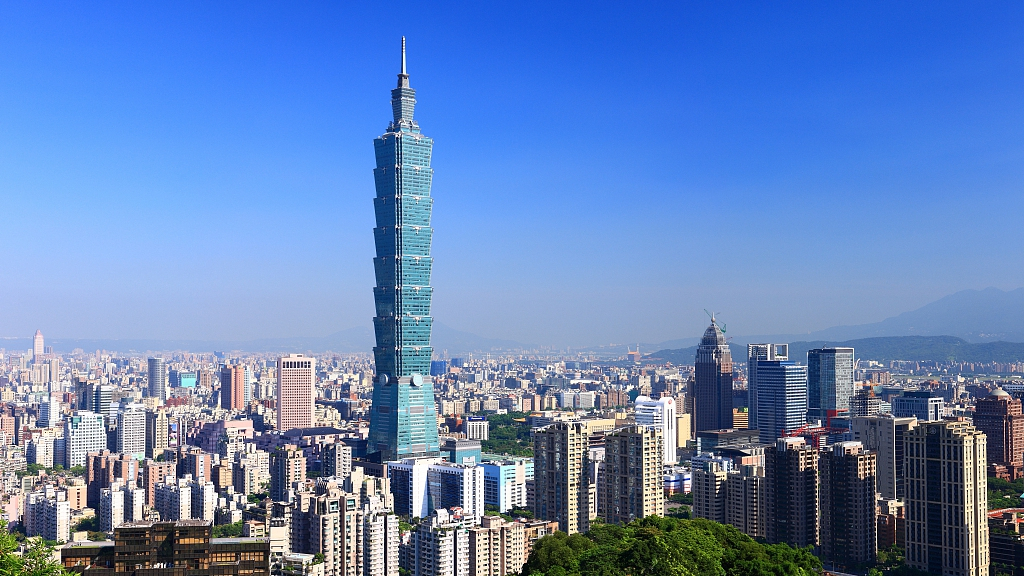
The Taipei 101 skyscraper commands the urban landscape in Taipei, Taiwan. [Photo/Xinhua]
This is an editorial from China Daily.
Contrary to the claims of Washington and Taipei, it is not the Chinese mainland that is responsible for the current tense situation in the Taiwan Straits. It is the island's leader Tsai Ing-wen and her pro-independence Democratic Progressive Party, with the collusion of the anti-Beijing hawks in Washington, that are jeopardizing peace and stability in the region with their aggressive posturing.
This was evident in the "National Day" speech Tsai made on Monday, in which she pledged to bolster the island's combat power, saying that Taiwan is increasing mass production of precision missiles and high-performance naval vessels, and working to acquire small, highly mobile weapons that will ensure Taiwan is able to respond to "external military threats".
The false narrative she is trying to sell — that it is the "intimidation" of the mainland that is responsible for stoking cross-Straits tensions — will find few buyers when it is so patently obvious that her administration and the Joe Biden administration are scratching each other's back.
Since the island has become a popular destination for Western politicians to visit to demonstrate their "credentials", Tsai may feel confident in leading the island onto a path of confrontation with the mainland, believing that she has the full support of the West. But such confidence is misplaced and she is willfully disregarding the consequences of any military clash.
Such confidence may also prove unfounded since despite US President Joe Biden's remark that US forces would defend the island in the event of "an unprecedented attack" — a claim quickly rolled back by the White House — the goal of the US' strategic framework for the "Indo-Pacific" is to "enable Taiwan to develop an effective asymmetric defense strategy and capabilities that will help assure its security, freedom from coercion, resilience, and ability to engage China (the Chinese mainland) on its own terms" — "on its own" being the operative words.
Beijing has reiterated it seeks peaceful reunification, but the massive military drills staged by the People's Liberation Army in six areas around Taiwan after the visit to the island by US House of Representatives Speaker Nancy Pelosi, which effectively sealed off the island for three days, should serve as a warning to the Taiwan authorities and their foreign supporters that the PLA will resolutely act to counter any attempts to split the island from the motherland.
Mao Ning, a spokesperson for China's Foreign Ministry, reiterated on Sunday that peaceful reunification and "one country, two systems" are the basic principles for resolving the Taiwan question, and she pointed out that rather than harming the legitimate interests of any country, "China's reunification will only bring more development opportunities to all countries and inject more positive energy into the prosperity of the Asia-Pacific region and the world at large".
Tsai and her supporters and her external backers are creating ill-judged headwinds to those opportunities with their actions.

 中文
中文



